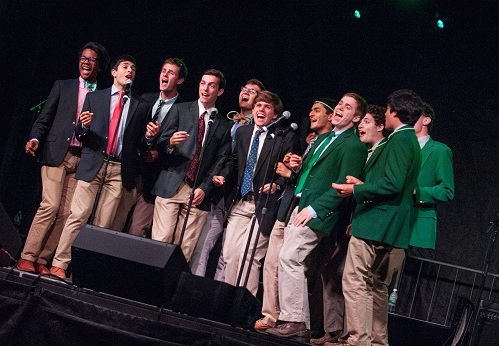On Eve of Beijing Charity Concert, beijingkids Chats with Dartmouth's All-Male A Capella Group
Next week, the Dartmouth Aires will perform at the Four Seasons Hotel Beijing for the Daystar/Ivy Charity Cocktail Concert. The event will entail a silent auction featuring works from renowned artists, hotel stays, and restaurant vouchers in addition to a cocktail menu and free flowing drinks. All proceeds from the event will help support six migrant schools' art and music program for a year and fund the college education of eight rural girls from Guilin.
In anticipation of the noteworthy cause, our sister magazine beijingkids spoke to Dartmouth Aires' Spring Tour Manager Brian Chalif.
Tell us about the group. The group was founded in 1946, back when Dartmouth was all male. Although Dartmouth has become co-ed, the Aires have remained all male. We originally were part of the Glee Club, but over time we detached. When we departed from the Glee Club, we become completely student run, from logistics to budgeting, arranging, rehearsals, choreography and any aspect you could think that would go into an a cappella group. The group currently has 20 members, with a large new member class of six people.
Why a cappella? As mentioned, we started as part of the Glee Club, but separated many years ago. In very old recordings, occasionally there were instruments, but that was only in the first couple of years. The reason that we only do a cappella is mostly tradition at this point, but I think most members would agree that the pure vocal music allows for some of the most beautiful music.
Is there a type of music that is impossible to vocalize? We sing a wide range of music. Pop, classical, musical theater, jazz, and much much more. I can’t imagine singing something like heavy metal music, dubstep, or electronic music. That being said, we have never tried!
How many languages can the group sing in? We sing mostly in English. However, we are learning a Chinese song for this tour! As a group, we have not sung in many languages, but individually many of us have sung in other languages. To name a few: French, Italian, German, Spanish, Hebrew, and Latin, but I am sure there are many more.
Read the rest of the interview over at beijing-kids.com



